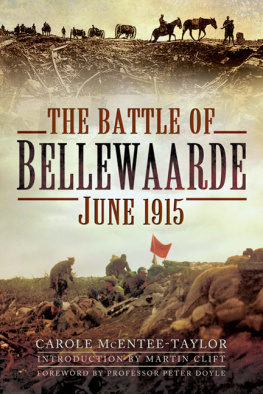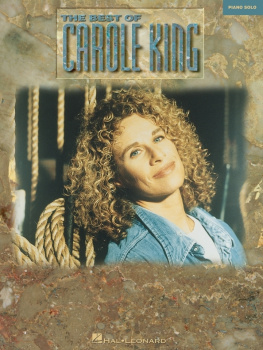Military Detention Colchester From 1947
Military Detention Colchester From 1947
Voices from the Glasshouse
Carole McEntee-Taylor
First published in Great Britain by
PEN AND SWORD MILITARY
an imprint of
Pen and Sword Books Ltd
47 Church Street
Barnsley
South Yorkshire S70 2AS
Copyright Carole McEntee-Taylor, 2014
ISBN 978 1 78340 059 1
eISBN 978 1 52677 278 7
Mobi ISBN 978 1 52677 279 4
The right of Carole McEntee-Taylor to be identified as the author of this work has been asserted by her in accordance with the Copyright, Designs and Patents Act 1988.
A CIP record for this book is available from the British Library.
All rights reserved. No part of this book may be reproduced or transmitted in any form or by any means, electronic or mechanical including photocopying, recording or by any information storage and retrieval system, without permission from the Publisher in writing.
CPI Group (UK) Ltd, Croydon, CR0 4YY
Pen & Sword Books Ltd incorporates the imprints of
Pen & Sword Books Ltd incorporates the imprints of Pen & Sword Archaeology, Atlas, Aviation, Battleground, Discovery, Family History, History, Maritime, Military, Naval, Politics, Railways, Select, Social History, Transport, True Crime, and Claymore Press, Frontline Books, Leo Cooper, Praetorian Press, Remember When, Seaforth Publishing and Wharncliffe.
For a complete list of Pen and Sword titles please contact
Pen and Sword Books Limited
47 Church Street, Barnsley, South Yorkshire, S70 2AS, England
E-mail:
Website: www.pen-and-sword.co.uk
Acknowledgements
There are so many people I need to thank that I am not too sure where to begin.
Its probably best I start with Lieutenant Colonel David Steele, ex-Commandant of MCTC, for giving me permission to write the book. Of equal importance are Dan Cowley and Les Pearse (MPSC Association) who between them are responsible for all the photos and the captions. Thank you both so much for all you help. Dan has also made several contributions to the text.
Many thanks to Lieutenant Colonel Jim Robinson for being a wonderful proof reader, Brian Chenier for being one of my readers and ex-WO2 Craig Patterson for allowing his phone number to be circulated as a contact for those interested in submitting their memories. All three have also contributed to this book.
Last, but certainly not least, I would like to thank all those who took the time and trouble to share their memories, good and bad. Without their help Military Detention Colchester from 1947: Voices from the Glasshouse would not exist. There is a full list at the back of the book.
My biggest problem was deciding what to leave out as it was very tempting to be side-tracked by some of the stories about other detention facilities around the world. But this book was always intended to be about the MCTC so perhaps that is for another day.
Finally, as always, thanks to my lovely husband David for his encouragement and support and because this book was actually his idea!
Foreword
Military Detention Colchester from 1947: Voices from The Glasshouse tells the story of detention in the Military Corrective Training Centre in Colchester through the eyes of those who were there. But it is not just a series of eyewitness accounts. It is also a history of how the ethos of military detention has changed through the centuries.
There is very little written about military detention, which historically has been judged to be harsher than its civilian counterparts. However, the book clearly demonstrates that detention within the military has successfully evolved from its purely punitive role in the eighteenth and nineteenth centuries when flogging and branding was the norm, to a twenty-first century rehabilitation model which HM Inspectors of Prison have suggested could be used to improve options in civilian prisons.
This is a fascinating insight into the evolution of military detention. It is reassuring to know that the system has become an enlightened and forward thinking institution where detainees undoubtedly come out well-trained and better motivated, whether being discharged to civvy street or soldiering on. I congratulate author Carole McEntee Taylor on her excellent book.
General Sir Mike Jackson GCB, CBE, DSO, DL
President ABF, The Soldiers Charity
Introduction
If my unit was like this Id want to stay in!
The haunting sound of the lone piper echoed round the immaculately manicured lawns and fragrant borders. The timelessness of its lament was only punctuated by the continuous applause of the military and civilian staff and detainees lining the paths to pay their tribute to the outgoing Commandant, Lieutenant Colonel Steele. His vehicle of choice, a 1950s Land Rover, followed slowly behind the piper, resplendent in his red jacket, tartan kilt, thick, white socks, and regulation spats, as he headed towards the gate for the last time. After three years in charge he was leaving for his new post, but, like many Commandants before him, he had left his mark on a unique establishment.
His last view of what had essentially been his home for the past three years, was of the compact, understated brick buildings, the neatly cut grass with its tree-lined borders and the manicured flower beds. These now stood where once Nissen huts had stretched as far as the eye could see and barbed wire fences loudly proclaimed the centres punitive purpose. Initially home to some Italian POWs in 1943, followed by upward of 6,000 Germans and Austrians from1944 to late 1947, this once peaceful meadow in Berechurch Hall Road, Colchester, had gradually evolved to become the home of the militarys only remaining detention centre: the Military Corrective Training Centre (MCTC) Colchester.
But it is not just the huts and the barbed wire that have been replaced. The whole ethos of military detention has also changed over the years.
In one sense the MCTCs transformed regime and culture is a reflection of the changing values of society that have occurred gradually over many years. But institutions do not evolve by themselves. Change is invariably a process that stems not only from societys changing values but also from the people who work within those institutions. Those who staff the MCTC have always been part of that evolutionary process. It is often the implementation of their innovative ideas, vision and initiatives drawn from their years of experience of working with detainees, which has been the real driving force for change. Thus, it is the staff and detainees who have passed through the gates of the MCTC who provide the living history that I have tried to capture in this book.











